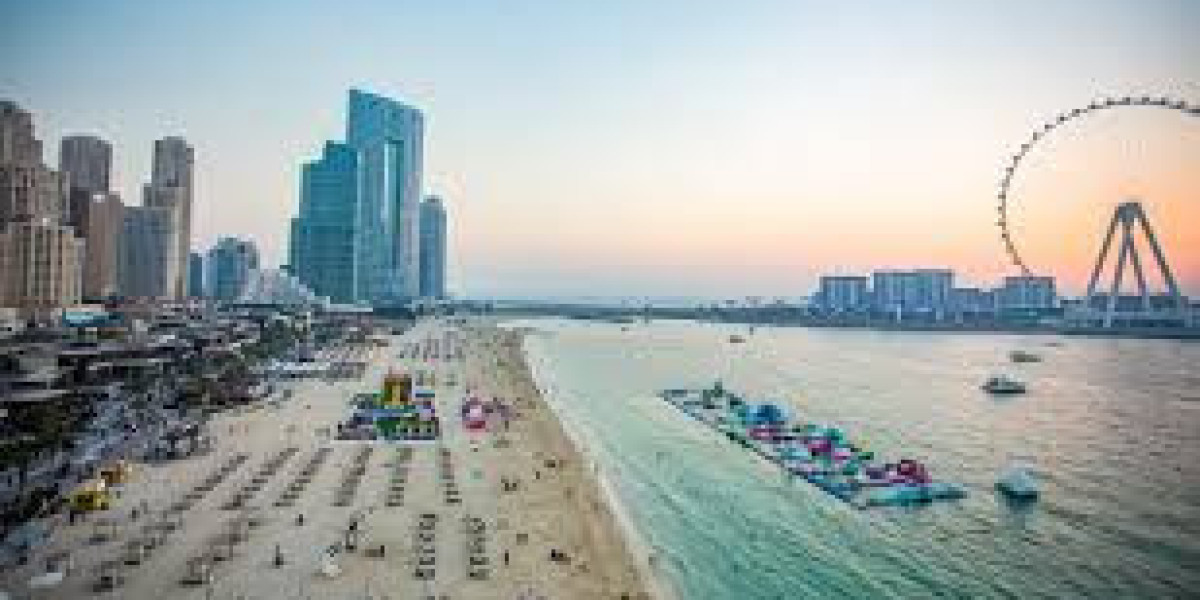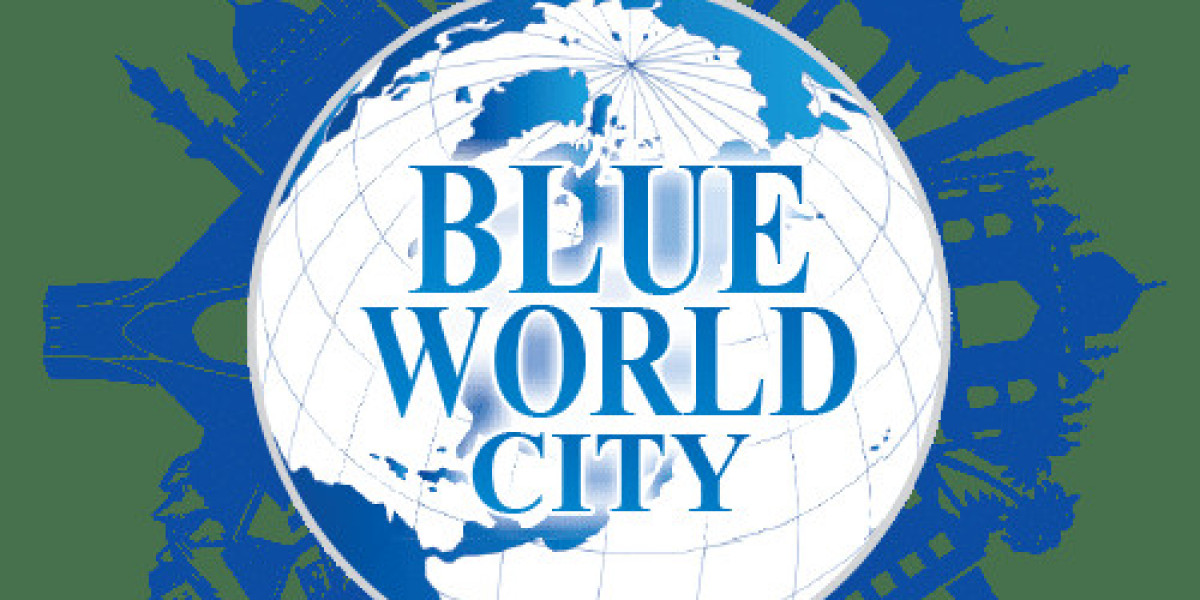Dubai, known for its towering skyscrapers, luxurious lifestyle, and awe-inspiring developments, has consistently pushed the boundaries of what's possible in urban planning and architecture. Among the city's many ambitious projects, one stands out as a testament to Dubai's commitment to excellence and innovation: Al Maktoum City. This sprawling urban hub, often referred to as Dubai South, is poised to become a game-changer in the region's urban landscape.
Introduction to Al Maktoum City
Al Maktoum City, also known as Dubai South, is a massive development project located in the southern part of Dubai. Named after the ruling Al Maktoum family, this ambitious undertaking covers an astounding area of 145 square kilometers, making it twice the size of Hong Kong Island. As it takes shape, it promises to revolutionize the city's urban environment and enhance its position on the global stage.
The project was launched in line with Dubai's long-term vision to diversify its economy and reduce its reliance on oil revenue. Al Maktoum City aims to achieve this by becoming a multifaceted urban hub that integrates various sectors, including commerce, logistics, aviation, and residential areas. It's poised to be a key driver in shaping Dubai's future as a global business and trade center.
Al Maktoum City's Strategic Location
One of the most significant advantages of Al Maktoum City is its strategic location. Situated near the Dubai World Central (DWC) Airport, the world's largest airport by land area, it is uniquely positioned to facilitate international trade and commerce. The proximity to the airport allows for efficient transportation of goods and people, making it an ideal location for businesses and industries with global ambitions.
Moreover, the city's strategic location extends beyond just air travel. It is well-connected to Dubai's extensive road network, including the Emirates Road and Sheikh Mohammed Bin Zayed Road, ensuring easy access to major business and residential areas within Dubai and the broader UAE.
The Al Maktoum International Airport
At the heart of Al Maktoum City is the Al Maktoum International Airport, designed to be one of the world's busiest airports once fully operational. The airport is a vital component of Dubai's plans to become a global aviation and logistics hub. Its state-of-the-art facilities are designed to accommodate the world's largest cargo aircraft, further cementing Dubai's status as a logistics powerhouse.
The airport has already played a pivotal role in connecting Dubai to destinations worldwide, and as the city continues to grow, it will undoubtedly become an essential gateway for trade and tourism in the region.
A Hub for Business and Commerce
Al Maktoum City is more than just an airport and transportation hub; it is a thriving business district in the making. The city's master plan includes dedicated areas for business parks and free zones, which have attracted companies from diverse industries.
Dubai South's Business Park offers a variety of advantages for businesses, including world-class infrastructure, proximity to major transportation hubs, and tax incentives. This business-friendly environment has attracted numerous companies seeking to establish a presence in the region.
One of the notable free zones within Al Maktoum City is the Dubai South Free Zone, which specializes in sectors like aviation, logistics, and e-commerce. Companies operating within this free zone benefit from 100% ownership, full repatriation of profits and capital, and a simplified registration process.
Residences and Communities
In addition to its focus on commerce and industry, Al Maktoum City is committed to creating vibrant and sustainable communities. The development includes various residential neighborhoods designed to accommodate a diverse range of lifestyles.
Emaar Properties, one of Dubai's leading developers, is involved in creating residential communities within Al Maktoum City. Their projects offer a mix of apartments, villas, and townhouses, catering to different preferences and budgets. These residential areas are planned to be integrated with parks, schools, and retail centers, ensuring that residents have access to all the amenities needed for a comfortable and enjoyable lifestyle.
Green Spaces and Sustainability
Dubai's commitment to sustainability is evident in Al Maktoum City's design and development. The city is focused on creating green spaces, implementing energy-efficient technologies, and promoting environmentally responsible practices. As part of this effort, Al Maktoum City aims to achieve a substantial reduction in carbon emissions and water consumption.
The city's commitment to sustainability extends to its transportation infrastructure. Plans are in place to develop an extensive network of cycling and pedestrian pathways, encouraging eco-friendly modes of transportation within the city.
Connectivity and Smart Infrastructure
Al Maktoum City is not just aiming for sustainability; it's also embracing cutting-edge technology to become a smart city of the future. The city's infrastructure is being designed with smart systems that facilitate efficient traffic management, waste disposal, and public services.
A key aspect of this vision is the implementation of 5G technology, which will provide ultra-fast and reliable internet connectivity to residents and businesses. This will enable the seamless integration of smart devices and services, enhancing the overall quality of life in the city.
The Expo 2020 Effect
The upcoming Expo 2020 Dubai is set to have a significant impact on Al Maktoum City. The city's proximity to the expo site will make it a prime location for businesses and visitors attending the event. With millions of visitors expected to attend the expo, Al Maktoum City's infrastructure and services will play a vital role in supporting this global gathering.
Furthermore, the expo is expected to generate economic opportunities and drive innovation, benefiting businesses and residents in Al Maktoum City and the wider Dubai region.
Challenges and Future Prospects
While Al Maktoum City holds immense promise, it is not without its challenges. The ambitious scale of the project requires significant investment, and economic fluctuations can impact its development. Furthermore, managing rapid urbanization and ensuring a balance between residential, commercial, and green spaces will be a complex task.
However, Dubai has demonstrated its resilience and adaptability in the face of challenges in the past. With visionary leadership and a commitment to excellence, the city is well-positioned to overcome these obstacles and continue its journey towards becoming a global urban hub.
Conclusion
Al Maktoum City, also known as Dubai South, represents Dubai's unwavering commitment to innovation, sustainability, and economic diversification. With its strategic location, world-class infrastructure, and a focus on business, commerce, and sustainable living, the city is poised to become a global urban hub.
As Al Maktoum City continues to evolve and expand, it will play a pivotal role in shaping Dubai's future and further solidify the city's position as a leading global destination for business, trade, and quality of life. With the upcoming Expo 2020 and a commitment to sustainability and technology, Al Maktoum City is set to be a key player in Dubai's ongoing success story.



